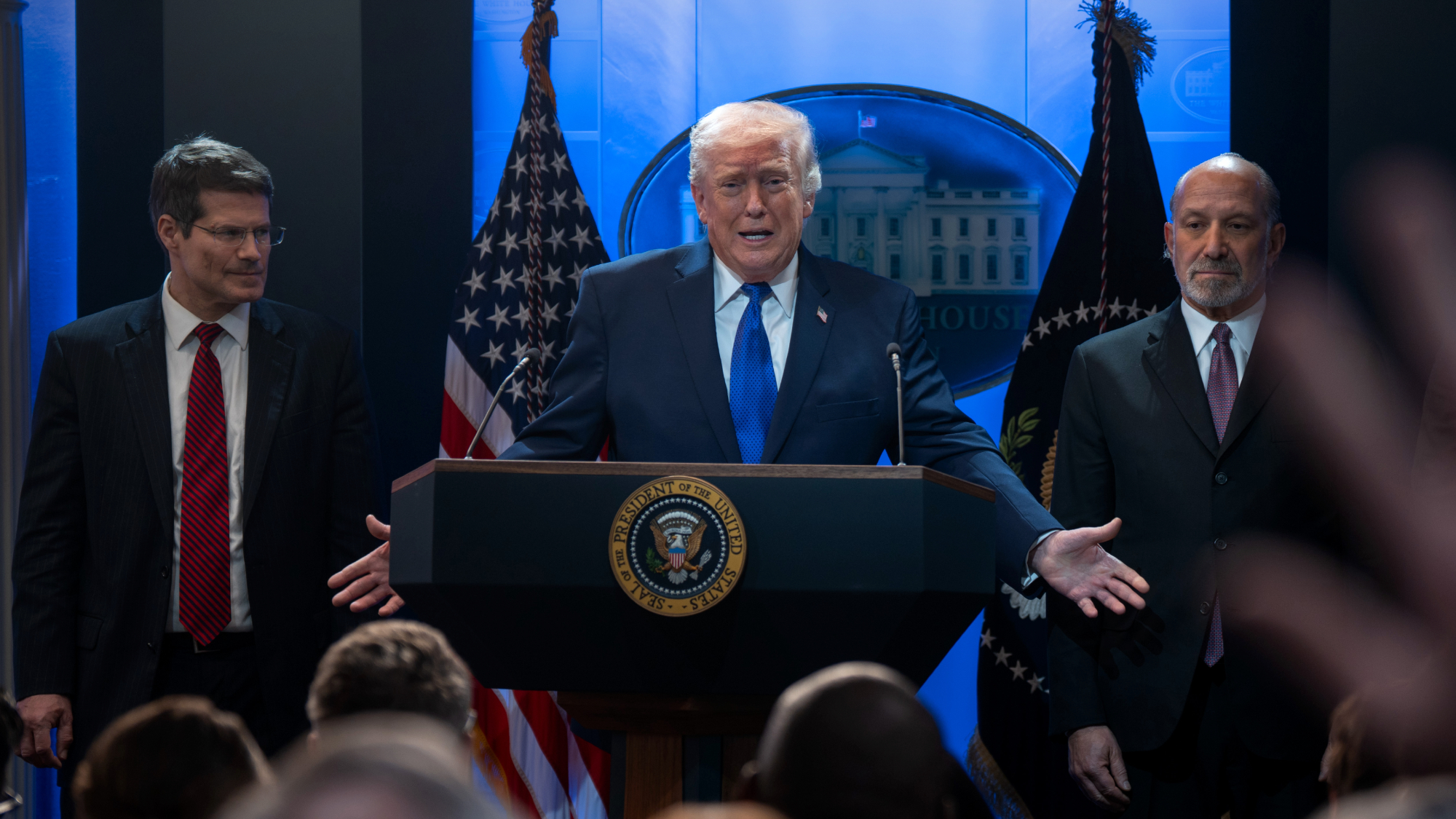Chinglish
In David Henry Hwang's “razor-sharp” new comedy, the balance of power has shifted from the West to the East.
A free daily email with the biggest news stories of the day – and the best features from TheWeek.com
You are now subscribed
Your newsletter sign-up was successful
Goodman Theatre, Chicago
(312) 443-3800
***
The Week
Escape your echo chamber. Get the facts behind the news, plus analysis from multiple perspectives.

Sign up for The Week's Free Newsletters
From our morning news briefing to a weekly Good News Newsletter, get the best of The Week delivered directly to your inbox.
From our morning news briefing to a weekly Good News Newsletter, get the best of The Week delivered directly to your inbox.
Times have certainly changed since “America’s premier chronicler of East-West relationships” created the work that made him famous, said Chris Jones in the Chicago Tribune. David Henry Hwang wrote his Tony-winning drama M. Butterfly in 1988, when China was a lumbering giant and its inhabitants were often stereotyped in the West as submissive. By contrast, Hwang’s “shrewd, timely, and razor-sharp” new comedy dramatizes a present-day mingling of the cultures in which the balance of power has shifted decidedly to the East. This time, the struggling owner of a Cleveland sign-making company, played by James Waterston, finds himself in a provincial Chinese city and very much beholden to the whims of two potential clients—the city’s culture minister (Larry Zhang) and young vice minister (Jennifer Lim). The world “has been turned on its head.”
Waterston’s negotiations with the officials pave the way for “a complex roundelay” of misunderstandings, said Mary Houlihan in the Chicago Sun-Times. In translation, his character’s “My hands are tied” becomes an eyebrow-raising reference to being in “bondage,” and “unforeseen problems befuddle his dealings at every turn.” At times, Chinglish threatens to become a one-joke “lost in translation” comedy. But Hwang consistently displays “a sharp eye for presenting Chinese culture in all its complexity” and an equally keen sense of its potential for friction with American ideals.
The play is executed so well, it almost doesn’t matter that the dialogue contains nearly as much Mandarin as English, said Steven Oxman in Variety. Hwang’s “just-twisty-enough story” is as expertly produced as it is performed. Lim is the real standout—as the “not so loyal” vice minister, she embodies better than anyone else on stage the notion that it takes a lot more than a few language lessons to understand what’s driving her country’s economic surge. Here’s hoping she makes the journey to New York this fall when this play moves to Broadway. Through July 24
A free daily email with the biggest news stories of the day – and the best features from TheWeek.com
-
 Winter Olympics end with US men’s hockey gold
Winter Olympics end with US men’s hockey goldSpeed Read The US men’s hockey team beat Canada to win their first Olympic gold medal since 1980
-
 Mexico kills drug lord El Mencho, sparking chaos
Mexico kills drug lord El Mencho, sparking chaosSpeed Read Cartel members responded with a wave of retaliatory violence across the country
-
 Trump’s tariff loss at Supreme Court roils trade
Trump’s tariff loss at Supreme Court roils tradeSpeed Read The court ruled that President Donald Trump’s most sweeping tariffs were unlawful
-
If/Then
feature Tony-winning Idina Menzel “looks and sounds sensational” in a role tailored to her talents.
-
Rocky
feature It’s a wonder that this Rocky ever reaches the top of the steps.
-
Love and Information
feature Leave it to Caryl Churchill to create a play that “so ingeniously mirrors our age of the splintered attention span.”
-
The Bridges of Madison County
feature Jason Robert Brown’s “richly melodic” score is “one of Broadway’s best in the last decade.”
-
Outside Mullingar
feature John Patrick Shanley’s “charmer of a play” isn’t for cynics.
-
The Night Alive
feature Conor McPherson “has a singular gift for making the ordinary glow with an extra dimension.”
-
No Man’s Land
feature The futility of all conversation has been, paradoxically, the subject of “some of the best dialogue ever written.”
-
The Commons of Pensacola
feature Stage and screen actress Amanda Peet's playwriting debut is a “witty and affecting” domestic drama.